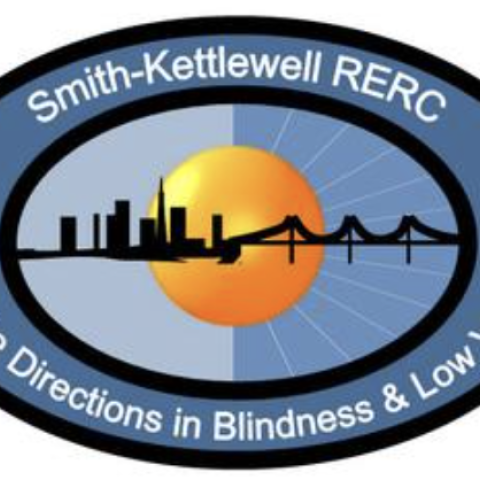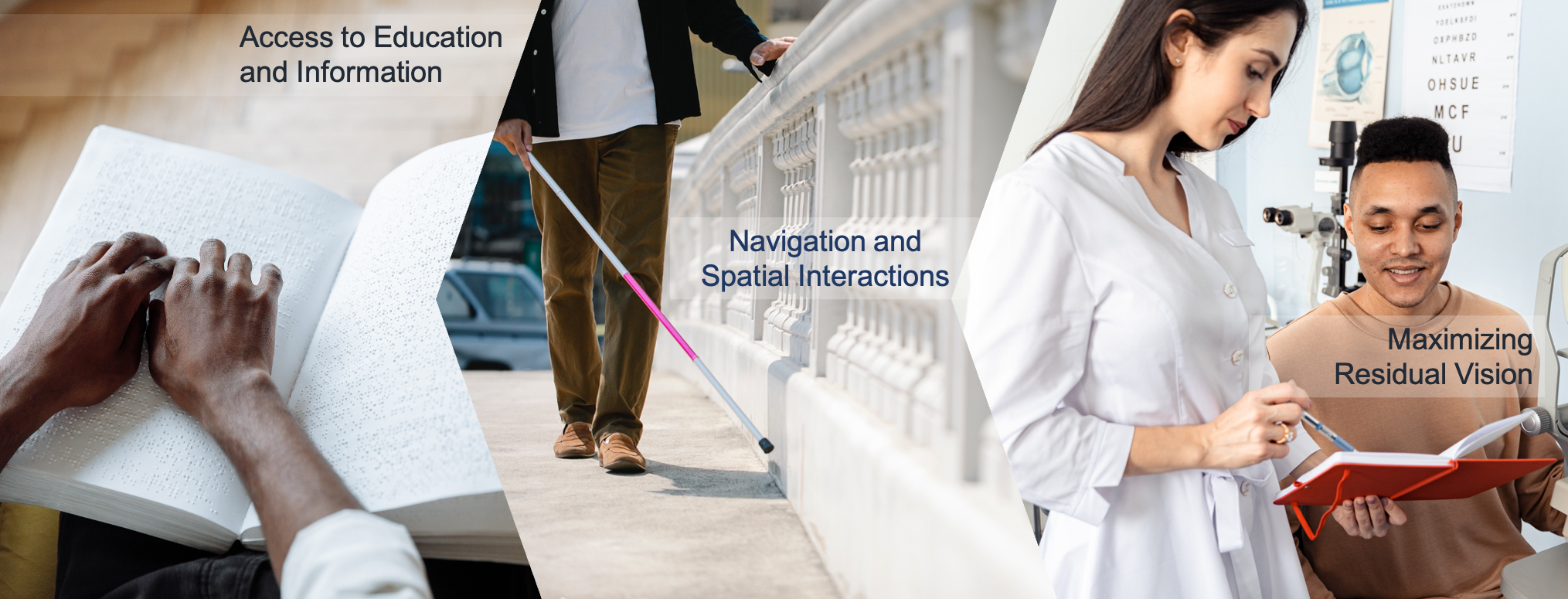
Smith-Kettlewell is proud to announce the newly awarded Rehabilitation Engineering Research Center (RERC) grant on Blindness and Low Vision. This is a five-year grant from the National Institute on Disability, Independent Living, and Rehabilitation Research, establishing Smith-Kettlewell as a center promoting the independence and well-being of people with visual impairments through research and development to improve the understanding of, and provide solutions for, challenges facing the blind and low-vision community.
Smith-Kettlewell has been the RERC on Blindness and Low Vision for half a century. In this time, the RERC (augmented by other important funding sources including the National Eye Institute and Smith-Kettlewell) has supported a number of R&D projects. A few examples include:
- TMAP (Tactile Maps Automated Production), which is now a commercial service that allows anyone to order a tactile map of any neighborhood in North America
- YouDescribe, a free, web-based platform for adding audio description to YouTube videos
- Talking Signs, a technology to make informational signs usable by individuals who are blind or visually-impaired
- SKILL (Smith-Kettlewell Institute Low Luminance) Card vision test
- The first auditory oscilloscope for blind users
Many of the RERC achievements can be found on the Accomplishments page.
The new RERC grant will support a total of eight projects within three main areas of focus, led both by researchers at Smith-Kettlewell and by outside collaborators. These projects include: (a) access to education and information (Audio-Tactile Media, AI-Enhanced Video Assistive Technology for YouDescribe and a Smith-Kettlewell Summer Institute); (b) navigation and spatial interactions (Mobilizing Non-Visual Digital Maps, VR Tools and Training to Improve Auditory Environmental Perception and AI Tools for Micro-Navigation); and (c) optimizing function with residual vision (Assessment and Rehab of Higher Visual Function Deficits for Cerebral Visual Impairment and Strategies to Improve Walking Safety with Central Field Loss).

